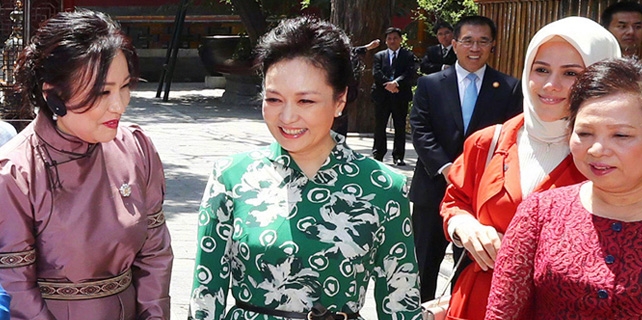Revolutionary road of T-shirts
 |
|
The famed I ♥ NY T-shirt [Photo/Courtesy of The New York State Department of Economic Development] |
In the finale of Prabal Gurung's autumn 2017 fashion show, the designer and his models startled the audience with their T-shirts, stamped with provocative political slogans such as: "The future is female." "I am an immigrant." "This is what a feminist looks like."
Clean-cut white T-shirts have become the perfect means for fashion designers to convey a blunt message – and they're easy to match with just about anything in your closet.
Evolving from the late 19th century when the one-piece garment was divided in two for miners and others working in hot environments, the history of the T-shirt took shape in the early 1900s when the US Navy began issuing the white, form-fitting, crew-neck cotton undergarments. First attributed in print to F Scott Fitzgerald in his debut 1920 novel This Side of Paradise, the T-shirt served as an unofficial uniform for laborers in the US, from farmers to factory workers – yet it wasn't considered fashionable at all until the 1940s, when it became popular among teenagers.
When Marlon Brando wore his tight-fitting white T-shirt in A Streetcar Named Desire in 1951, the whole world began to discover the hidden sexiness under the soft cotton. T-shirts became associated with masculinity and confidence. The 1955 film Rebel without a Cause, with James Dean, further pushed the T-shirt's "bad-boy" image, with Dean's iconic white T-shirt paired with a red nylon jacket and light-blue jeans. With comfort, inexpensiveness and style rolled into one, T-shirts became a man's wardrobe staple.




















